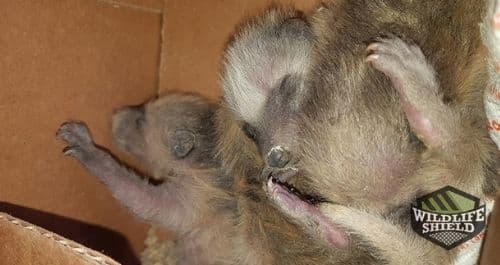This article will analyze and recount a case of a raccoon entering an attic that required more than one visit. It will detail the steps taken in exclusion, by the technician, to exclude and humanely remove the raccoon from the attic along with its babies. This is raccoon removal occurred in Kitchener and specifically in the Idlewood area.
The technicians, before the exclusion, must first inspect and confer with the customer or customer’s on the issue and then must inspect for levels of activity. The customer’s original complaint was loud sounds in the attic at night, the customer did not know the entryway the animal used to enter the attic.
Idlewood: A winding suburban neighborhood with a park laced through it. Kitchener is part of what is called the tri-city or the Regional Municipality of Waterloo. It has a very large winding park that snakes its way through the entire subdivision allowing wildlife to wander freely through the subdivision. A river called the Grand River passes around the subdivision and is home to two dams refers to as the west damn and the east damn which have been used to measure ongoing erosion caused by the river. The reason being is that the river functions as drainage for the area.
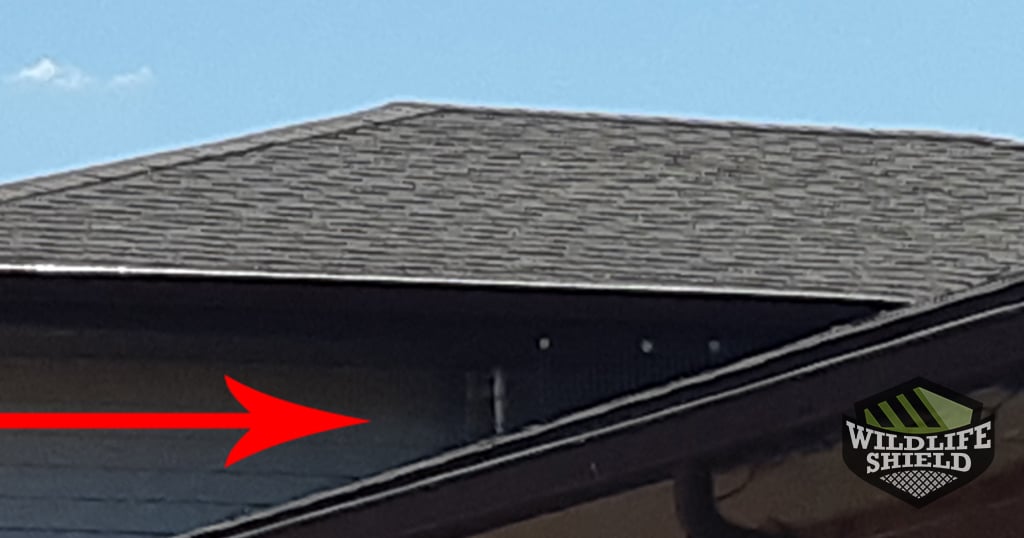
Exterior Wildlife Inspection
When our wildlife removal technicians arrive on site they will perform an exterior inspection of the outside of the house. We will be looking for possible damage that could be an entryway for a wild animal. The exterior inspection found an entryway at the intersection of a soffit and the roof. This is likely where the raccoon entered and is commonplace for them to do so as the intersection between aluminum or vinyl soffits is very weak at the intersection of the roof. Four roof vents were found to be accessible by wild animals and were covered.
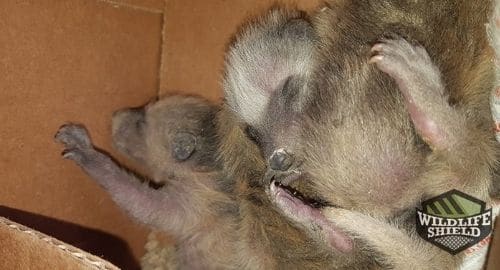
Interior Inspection
Since this job occurred during the Spring months we always inspect the attic for babies. It is the season when raccoons break into attics to have their litters. The attic was inspected for immobile raccoon babies. This process can sometimes take hours as the babies are small and are tucked in the attic insulation. Babies were found. The inspection is necessary as locking a raccoon mother out with her babies still in the attic can lead to massive damage to the roof and of course to make sure that no animals are harmed.
Initial Measures
The technician went into the attic and inspected for raccoon infants, being blind and immobile they cannot vacate the attic on their own. The technician removes them and placed them into a small cardboard box and placed the box by the entrance to the one-way door used to evict the mother raccoon. Once babies are removed from the attic they are reunited with their mother outside the roof. After every other entry point is sealed, the mother exits from the door take her babies, and moves on.
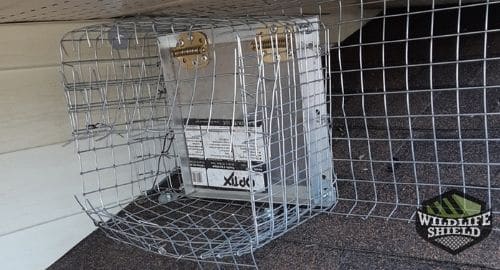
Proposed exclusion
The opening in the soffit that meets the roof was sealed off with steel mesh and a one-way door which humanely allows the raccoon to vacate the attic while locking them out and preventing them from getting back in. This is an effective and humane method of dealing with wild animals in your attic. The one-way door is installed to let the raccoon mother out. She will take her babies which are placed right outside the door and move on.
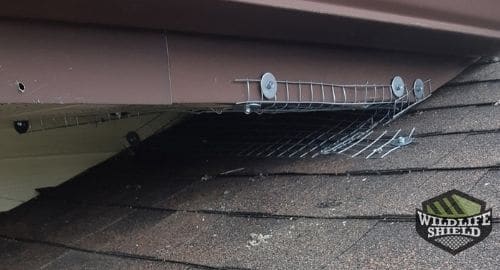
Conclusion
The technician successfully evicted the raccoon using the humane one-way door approach. The raccoon babies were safely removed from the attic and the raccoon was expelled permanently from the customer’s attic. The one-way doors were then removed and the opening sealed with exclusion.

